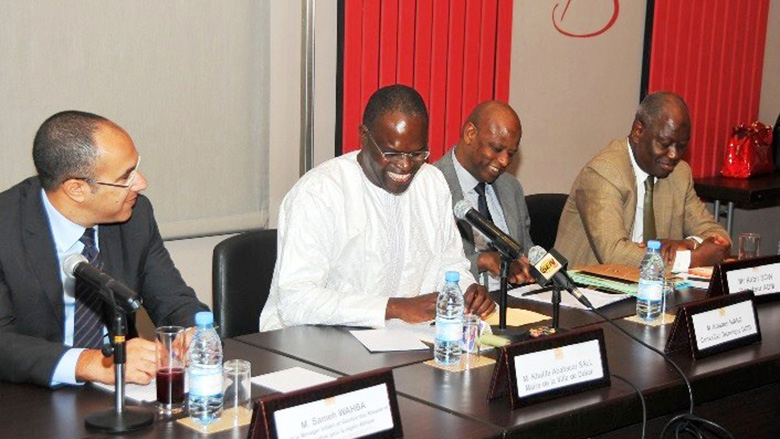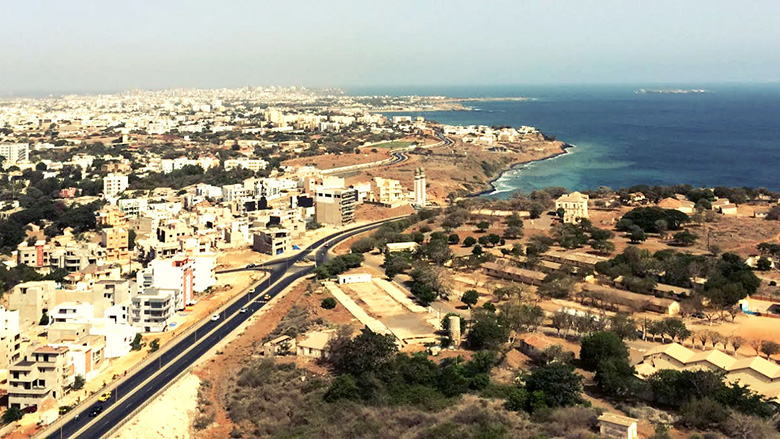Despite a real potential, the city of Dakar lacks in resources and faces difficulties to mobilize its existing revenue. To address these challenges, the city has recently started to seek other sources of funding and attempted to connect to regional capital markets to finance new urban infrastructure. However, a sound and transparent management of its revenues is an essential requirement to Dakar’s future success, and would contribute to improve the city’s creditworthiness.
Forging an Urban Revenue Improvement Strategy
Following a request from the city of Dakar, the World Bank and the Public-Private Infrastructure Advisory Facility (PPIAF) are accompanying the city in improving its revenue strategy and developing an action plan for more transparent and efficient management of Dakar’s revenues. After many discussions, the involved parties agreed that the strategy would be executed in three stages: a launch workshop, specific studies on the themes identified during the inception workshop, and an action plan to implement proposed recommendations.
The launch workshop, which took place in September 2013, brought together for the first time in many years all the stakeholders that are involved in Dakar’s revenue strategies. It became clear that Dakar faces many of the same problems regarding general and municipal taxes (or tax systems) as other African capitals. They are confronted with difficulties identifying taxpayers, have incorrect tax bases or duplications, experience delays in issuance of key tasks, lack the means to recover from financial strains, or are weak in establishing means of enforcement.
“We are aware of issues with tax expenditures, namely the cost of exemptions, deductions, and tax loss. The losses from allowances that benefit those who are subject to land tax remain quite significant,” noted Mr. Mamadou Gniang, the General Inspector of Taxes and Domains.
The objective of the workshop was to go beyond listing all the shortcomings and malfunctions of the revenue recovery system and develop a real action plan. Part of the workshop consisted of reviewing a series of studies that evaluated the most blatant shortcomings and proposed several recommendations. The statistical study showed that there are still efforts needed with regards to identifying the tax base and assessing tax expenditures, while a market revenue study revealed the need to better identify local markets, increase very low tax rates, enforce contracts and implement an effective management system with daily targets that are reviewed by tax collectors. The advertisement tax study confirmed the urgency to update tariffs legislation in order to escape litigation risks. A study conducted on tax planning proposed to introduce a legislation setting new tax rates as well as terms of assessment and tax collection.
In addition to these studies, a parking tax study reiterated the need for a new way of structuring the parking tax, a digital technology study revealed an urgent need for a software interface that improves coordination between the administrative interfaces, and a land registry and street addressing study proposed to resume the fiscal cadaster, given that it can effectively combine the cadastral tasks and the tax tasks with the tax centers. “How can we find taxpayers when their address is as incomplete as ‘Mr. Diouf in the Almadies’? Street addresses are the basis for all identification!” exclaimed an officer at the municipal tax collection office.
Lastly, one of the main recommendations of this series of studies was the creation and implementation of a local tax monitoring committee. This committee would provide key players in the fiscal chain with a platform to more effectively coordinate their actions.
The process of improving tax revenues in the city of Dakar is without a doubt a complex endeavor given the multiplicity of tax revenues and the high number of various taxes and fees currently distributed differently among the different municipalities that make up Dakar. Furthermore, the participation of all the stakeholders is very important when it comes to reform and decision-making, hence the need to create a consultation framework in which to coordinate actions of all the key actors in the fiscal chain.


